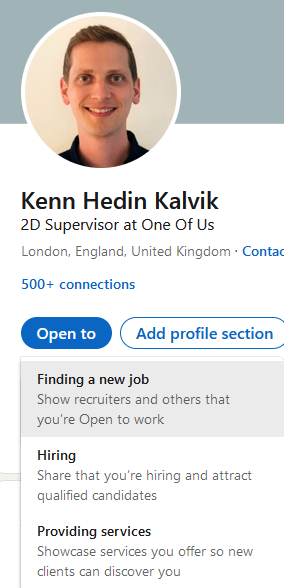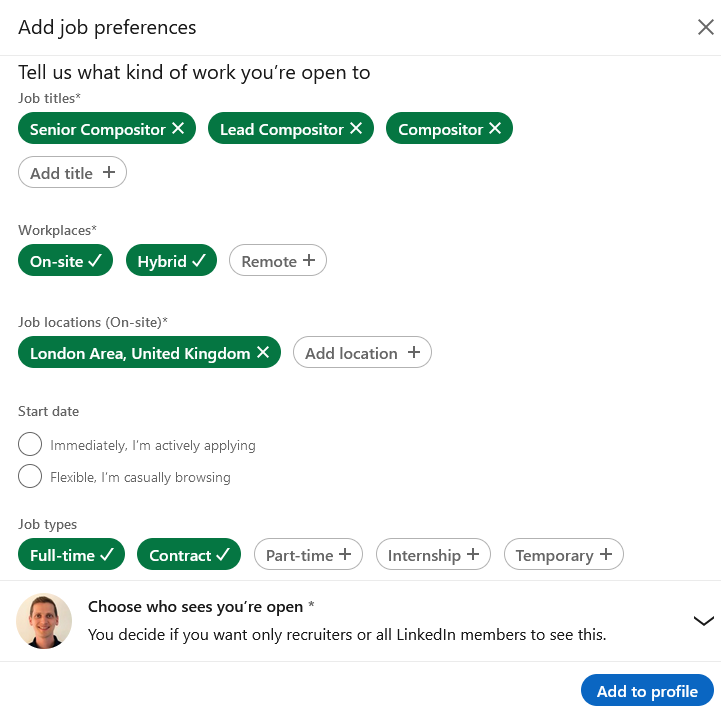How To Get Hired As A Compositor – Part 5: Write An Outstanding Job Application
⭐ In this 8-part guide, I will take you through best practices for every step of the journey to getting hired as a compositor. ➜ Part 5 is about how to write an outstanding job application that will make sure you get noticed…

⭐ In this 8-part guide, I will take you through best practices for every step of the journey to getting hired as a compositor. ➜ Part 5 is about how to write an outstanding job application that will make sure you get noticed…
This is a Companions Exclusive Tutorial
Or
You can find the previous parts of the guide here:
Part 2: Build A Strong Network
Part 3: Create A Spectacular Showreel
Part 4: Write An Impressive CV
Why You Should Level Up Your Job Application
VFX studios sometimes receive hundreds of applications per month, and so it’s your job to make sure that yours doesn't end up in the "no" pile.
The way you write your application directly affects your chances of convincing the recruiter to invite you for an interview.
Your application may very well be your first point of contact – the first time the recruiter is digitally introduced to you as a person, and as a candidate for the role. Everything in it should be tailored to make the best first impression possible.
Clean Up Your Online Image
First things first, be mindful of your online presence. Recruiters may look you up when you apply for a role, and you want to be presenting a positive online image.
Do a full audit before you apply for any roles, and clean up your online activity if needed. Google yourself to see what’s out there. Set social media posts to private, and/or remove questionable material from blog posts, comments, photos, etc. – anything that doesn’t reflect well on you, or doesn’t represent your current maturity level.
As an example, if you wrote a post where you went off on an expletive-filled rant about your former employer – that may make you come across as belligerent and difficult to work with. No matter how right you may or may not have been about them, it's best to remove it, or at the very least make it private.
Update Your Public Profiles
Next, make sure to keep your professional social media pages up to date. Your LinkedIn profile in particular. But even your Twitter profile or other sites that you use publicly with your name.
Let's say for example that you just moved from Australia to London and are looking for a job. Make sure to update your online profiles with your new city. Likewise, update them with your latest title and experience, matching to your CV. Any new contact information such as a new telephone number should also be updated.
Recruiters may search for compositors in London, and if your profile is outdated and still says that you are a roto/prep artist living in Australia you’ll get lost in the cracks.
Also, update your LinkedIn profile and other professional profiles to show recruiters that you’re open to work.
To do that on LinkedIn, click on the Open to button on your profile, and select Finding a new job:

Then, choose the options that are relevant to you before clicking Add to profile:

Put yourself out there, you want to be easily found.
How To Write Your Application
Once you have done all the prep work above (including everything in parts 1-4 of this guide), you’ll be ready to start writing applications.
First, let’s consider what you need to demonstrate in the application to make you a desirable candidate.
What Do They Want
The recruiter is ultimately looking for two things:
Do you meet their criteria? Show that you match the requirements for the role and are a good fit for the team.
Do you stand out among the other applicants? Other candidates may have similar qualifications. What gives you the edge? Lean into what makes you unique and demonstrably better than the rest of the pack.
When you write your application, the two points above should be your overarching themes. Everything should lead back to specifically answering those two questions with YES.
Objectives For Each Application
So let’s break it down, how can we get the recruiter to say yes to the two questions above?



